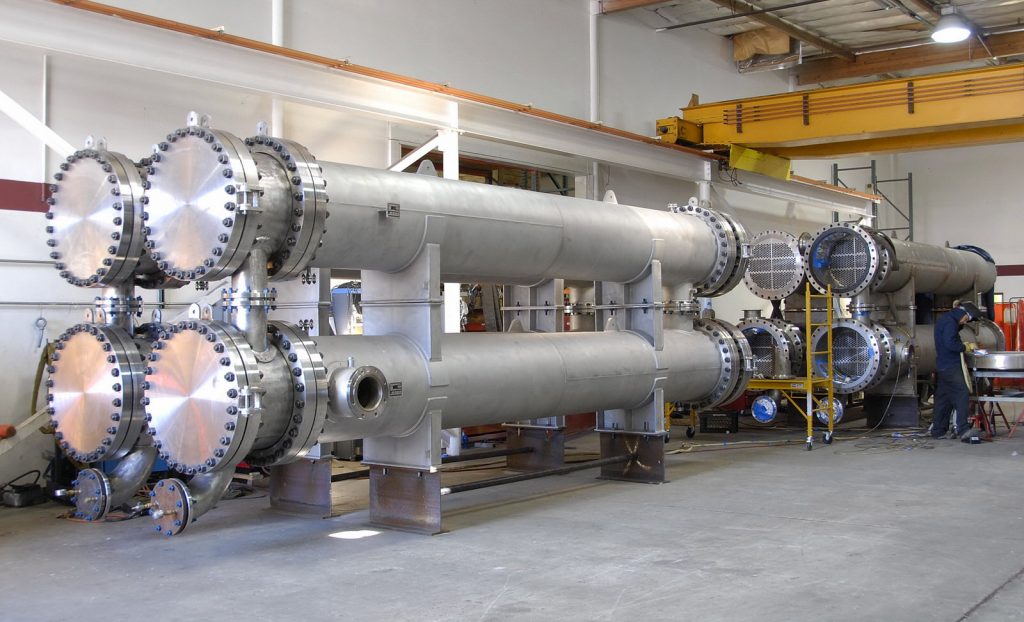Heat exchangers are used in a variety of different industrial piping applications. A heat exchanger is a device that’s used to transfer heat from one medium to another. These exchangers may vary in terms of shape and size, but the essential function is still the same. A heat exchanger is mainly used to transfer heat from one fluid to another. In order to prevent the fluids from mixing with each other, most heat exchangers have a solid wall built in between. However, certain exchangers use chemical processes in order to prevent the liquids from mixing with each other.
Heat exchangers are used in plenty of devices and industrial processes. For instance, some of these exchangers are mainly used for refrigeration and space heating. They are also employed in power stations, petrochemical plants, petroleum equipment and refineries, natural gas processing plants, chemical stations and sewage treatment plants. Given the fact that they are so versatile, heat exchangers can be used in various different applications without undergoing significant change.
Ordering a Heat Exchanger
If you need to place an order for a heat exchanger to use in your factory, there are plenty of different options available. Standard heat exchangers can generally be bought from industrial equipment sellers. However, if you want a specific exchanger designed for a particular purpose, you will have to contact a heat exchanger manufacturer directly. The manufacturer will take your specifications into account before creating an exchanger that’s tailored to your needs and requirements. High-quality heat exchangers are generally more expensive, but they will last much longer. They are designed to be durable and are made using stainless steel or aluminium. These metals are resistant to fire, corrosion and rust. You may choose to apply industrial coatings Perth to minimize normal wear and tear of this equipment. Applying additional protection, such as OCTG coatings, will also prevent internal damage caused by moisture and other elements.
When you first contact a manufacturer, ask about the different varieties of exchangers in stock. You can then decide if the exchanger meets your requirements. Most manufacturers also create exchangers that are designed with a specific purpose in mind. Before giving the green light, make sure you negotiate the price with the company.
Because of the specific nature of such exchangers, it’s important for you to get an idea about the price of the exchanger. Most companies are willing to negotiate on the price in order to gain new customers for the long term. The flow arrangement may vary depending upon the application for which the exchanger will be used.
Types
Heat exchangers are available in many different shapes and sizes. Here are some of the most common types of exchangers:
- Shell and tube exchangers
- Double pipe heat exchangers (simplest type of exchangers available)
- Plate heat exchangers
- Plate and shell heat exchangers
- Plate fin exchangers
- Adiabatic wheel heat exchangers
- Pillow plate heat exchangers
- Waste heat recovery units
- Fluid heat exchangers
- Phase change exchangers
- Dynamic scraped surface heat exchangers
- Direct contact exchangers
- Microchannel heat exchangers

